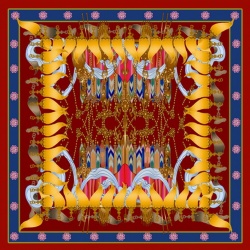Difference between revisions of "འགོག་པ་"
Jump to navigation
Jump to search
| Line 1: | Line 1: | ||
{{DisplayImages|{{Random number}}}} | {{DisplayImages|{{Random number}}}} | ||
| − | {{Dictkey| | + | {{Dictkey|[[འགོག་པ]]།}} ([[Wyl.]] '''[[gog pa]] '') ''n.'' {{Color|#808080|''Pron.:'' gokpa}} |
{{dverb|བཀག་པ།|འགོག་པ།|དགག་པ།|ཁོག|ཐ་དད་པ་|v.t.}} | {{dverb|བཀག་པ།|འགོག་པ།|དགག་པ།|ཁོག|ཐ་དད་པ་|v.t.}} | ||
* ''v.t.'' to stop, refute | * ''v.t.'' to stop, refute | ||
Revision as of 16:53, 18 July 2014
འགོག་པ། (Wyl. 'gog pa ) n. Pron.: gokpa
| བཀག་པ། | འགོག་པ། | དགག་པ། | ཁོག | ༼ཐ་དད་པ་༽ |
| past | pres. | fut. | imp. | v.t. |
- v.t. to stop, refute
- Cessation
- cessation
- Skt. प्रतिबन्धः, pratibandha, Pron.: pratibandha. From Sanskrit: connection, uninterruptedness | a prop, support | investment, siege | obstacle, hindrance, impediment | opposition, resistance | by all kinds of resistance | a logical impediment, obstructive argument | stoppage, suspension, cessation
- Skt. निरोधः, nirodha, Pron.: nirodha. From Sanskrit: confinement, locking up, imprisonment | investment, siege | enclosing, covering up | restraint, check, control, suppression, destruction | (in •dram.) disappointment, frustration of hope | with | suppression or annihilation of pain (one of the 4 principles) | a •partic. process to which minerals (•esp. quicksilver) are subjected | hurting, injuring | aversion, disfavour, dislike | N. of a man
Further Information
- Grammar notes: Verbs of benefit / harm
- Buddha nature
- Uttaratantra Shastra
- Seven vajra points
- Four Noble Truths
- Nirodha
